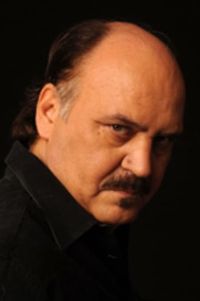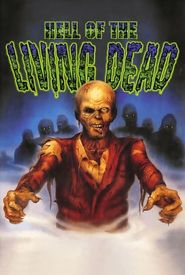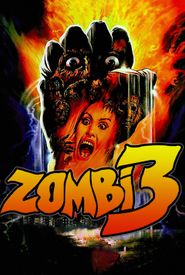Born in Rome, Italy, Claudio Fragasso's existence was forever altered by his father's profound enthusiasm for the art of cinema, which instilled in him a profound appreciation for the medium from a very young age. This early exposure to the world of filmmaking had a profound impact on Fragasso, as he frequently found himself accompanying his father to the legendary Cinecittà studios, where he would watch in awe as the magic of moviemaking unfolded before his very eyes.
As a child, Fragasso's father's passion for cinema served as a catalyst, igniting a lifelong fascination with the art of filmmaking that would ultimately shape his future. At the tender age of ten, Fragasso's British brother-in-law, a documentary director for the London BBC, presented him with a super 8 camera, a gift that would forever change the trajectory of his life.
With his newfound creative tool, Fragasso began crafting short films, often involving his friends in the production process. As a young boy, he was a true auteur, handling every aspect of filmmaking himself, from writing and directing to editing. This early experimentation with the art of filmmaking not only honed his skills but also instilled in him a sense of confidence and self-assurance that would serve him well throughout his career.
After the completion of his classical education, Fragasso devoted himself to refining his expertise as an editing assistant, subsequently ascending to the role of assistant director. At the tender age of twenty, he embarked on his inaugural feature film project, a super 8 production titled "Paure e Realtà". This initial endeavour served as a foundational stepping stone, laying the groundwork for his subsequent triumphs.
Fast-forward four years to 1979, when his cinematic masterpiece "Pasaggi" garnered the esteemed Ischia film festival's top honor, thereby cementing his status as a rising star in the world of film direction.
Italian filmmaker Marco Fragasso's career reached a pivotal milestone in 1981 with the unveiling of his 35 millimeter feature film, "Difendimi dalla Notte", which garnered widespread critical acclaim and recognition at various prestigious film festivals. Notably, the film received accolades at the esteemed San Sebastian Film Festival, the Nice Film Festival, and the Annency festival, solidifying Fragasso's reputation as a talented and innovative filmmaker in the Italian cinematic landscape.
In addition to these notable festival appearances, "Difendimi dalla Notte" was selected for competition at the renowned Berlin Film Festival, a testament to Fragasso's growing prominence in the Italian film industry. This significant achievement served as a catalyst for his continued success, propelling him to the forefront of Italian filmmaking and cementing his status as a rising star in the industry.
As a filmmaker who had initially tasted success, Fragasso faced a daunting challenge in his native Italy, where a web of political connections and family ties often dictated the pace of the industry. Despite the obstacles, Fragasso refused to be deterred, instead opting to expand his horizons by venturing into the global market. This bold move allowed him to direct a diverse array of films, tailored to captivate international audiences. His work frequently featured a talented ensemble of American and European actors, and he formed a fruitful creative partnership with his close friend and fellow director, Bruno Mattei, on numerous projects.
Federico Fragasso and Luigi Cozzi, commonly known as the duo of Fragasso and Mattei, embarked on a cinematic adventure that spanned numerous genres, including but not limited to, horror, western, science fiction, adventure, thriller, war, and detective films.
Their collaborative efforts resulted in a diverse and eclectic array of critically acclaimed and commercially successful movies, showcasing their versatility and innovative storytelling abilities.
As their partnership drew to a close, Fragasso continued his creative journey, venturing forth to explore the world, directing an array of horror films, science fiction epics, and zombie movies that captivated audiences worldwide.
Throughout his illustrious career, Fragasso's passion for filmmaking remained unwavering, as he traversed the globe, delving into the realms of the unknown, and bringing forth a plethora of cinematic masterpieces that continue to inspire and entertain to this day.
In the year 1984, a remarkable opportunity arose for Fragasso, as an American production company extended an offer to him to assume the directorial reins of a film featuring the renowned rock star, Alice Cooper, in the title role of "Monster Dog".
The subsequent year, Fragasso embarked on a new project, helming the cult classic "After Death" in the Philippines, a venture that would undoubtedly leave a lasting impact on the world of cinema.
Fast forward to 1989, Fragasso was at the helm of yet another groundbreaking film, "Goblin", a phenomenon that would captivate audiences worldwide. However, a curious misunderstanding would later lead to a unexpected twist, as "Goblin" was mistakenly released in the United States under the title "Troll2", a decision that would inadvertently spark a lasting and unprecedented success.
A decade elapsed since Fragasso's initial foray into the global film scene, his creative endeavors having taken him to distant shores. The passage of time, however, only served to rekindle his ardor for cinema that was not only entertaining, but also socially conscious. The year 1993 marked his return to Italy, a turning point that would pave the way for a new chapter in his illustrious career.
Fragasso's creative output during this period was marked by the production of the award-winning film "Teste Rasate." This cinematic masterpiece garnered widespread acclaim, its global appeal evident in its successful distribution in numerous countries worldwide.
In the following year, Fragasso collaborated with 20th Century Fox Italy on the highly acclaimed "Palermo Milano Solo Andata." This collaborative effort proved to be a resounding success, with the film making its premiere in competition at the prestigious Venice Film Festival. The film's universal appeal was further underscored by its subsequent distribution in a staggering 83 countries.
Throughout his remarkable and illustrious career, spanning over four decades, Claudio Fragasso has made an astonishing forty films, serving as a mentor to a multitude of young actors who have gone on to achieve stardom. As a seasoned and accomplished filmmaker, he continues to oversee and guide emerging directors, consistently fueled by his unwavering passion and dedication to the art of cinema.
As a true visionary, Claudio Fragasso has left an indelible and lasting mark on the world of filmmaking, leaving behind a legacy that will undoubtedly be cherished and celebrated for generations to come.













































